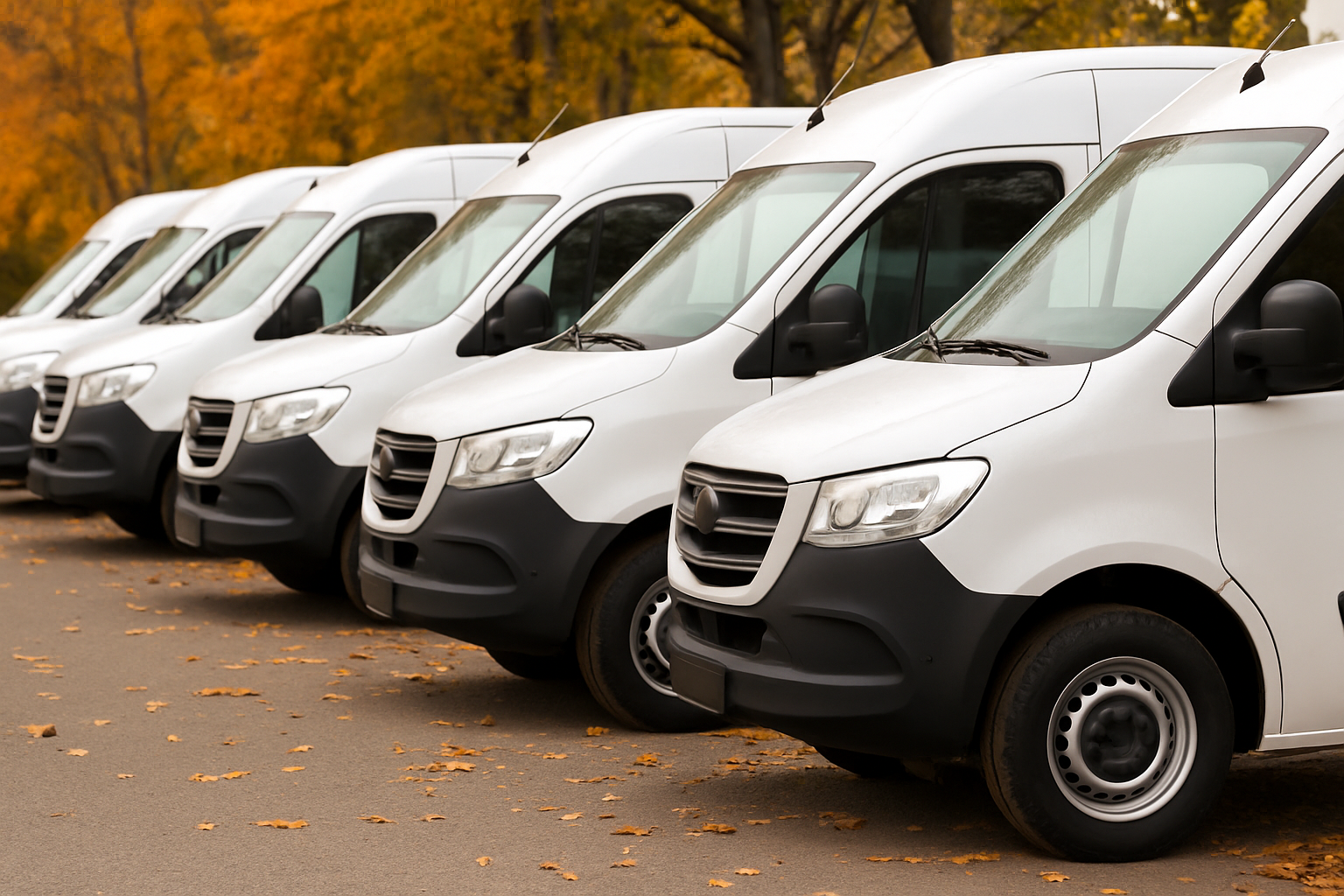
Protect Your Business on the Road
Every business that relies on vehicles—whether for deliveries, client visits, or transporting goods—faces unique risks on the road. Commercial auto insurance is designed to protect your company from financial losses resulting from accidents, theft, and other unforeseen events involving business vehicles. In this guide, we’ll explore what commercial auto insurance is, its key components, and how it benefits businesses of all sizes.
Mobile home insurance provides various coverages to protect your home, belongings, and liability. Here are the main components:
- Liability Coverage:
- Covers bodily injury or property damage caused by a business vehicle.
- Example: A delivery van rear-ends another car, and liability insurance pays for the damages.
- Physical Damage Coverage:
- Protects your vehicle in case of collisions, theft, or vandalism.
- Example: Your company truck is damaged in a hailstorm, and this coverage helps pay for repairs.
- Medical Payments or Personal Injury Protection (PIP):
- Covers medical expenses for drivers and passengers injured in an accident.
- Example: A company driver sustains injuries in a collision, and medical payments coverage handles their hospital bills.
- Uninsured/Underinsured Motorist Coverage:
- Protects your business if an uninsured or underinsured driver causes an accident.
- Example: Your business vehicle is hit by a driver with no insurance. This coverage helps pay for repairs and medical expenses.
- Comprehensive Coverage:
- Covers non-collision-related damage, such as theft or natural disasters.
- Example: A company car is stolen from the parking lot, and comprehensive coverage reimburses you for the loss
Even small accidents can result in significant financial losses. Commercial auto insurance offers peace of mind and protects your company from unexpected expenses. Here’s why every business should consider it:
- Legal Compliance:
- In most states, businesses are legally required to carry liability insurance for their vehicles. Failing to do so can result in hefty fines and legal consequences.
- Protection Against Lawsuits:
- Without commercial auto insurance, your business could be sued for damages or injuries caused by your vehicle.
- Coverage for Multiple Drivers:
- Personal auto policies often exclude coverage when someone other than the owner drives the vehicle. Commercial auto insurance covers all authorized drivers.
- Safeguarding Business Assets:
- A single accident could lead to significant repair costs, medical bills, and lost income. Commercial auto insurance ensures your business remains financially stable.
Types of Businesses That Need Commercial Auto Insurance
While almost any business that uses vehicles can benefit, certain industries rely on commercial auto insurance more than others:
1. Delivery and Courier Services: Businesses delivering packages, food, or medical supplies face higher risks due to frequent driving in urban areas.
2. Construction and Landscaping Companies: Vehicles transporting heavy equipment or materials require specialized coverage for high-value cargo and physical damage.
3. Ride-Sharing and Transportation Services: Taxi, shuttle, and non-emergency medical transport companies need robust liability and passenger injury protection.
4. Retail and Wholesale Businesses: Companies using trucks or vans to transport inventory benefit from coverage for both vehicles and cargo.
5. Real Estate and Client-Facing Professionals: Realtors and consultants traveling to client locations may need coverage beyond personal auto insurance policies.


Customizing Your Commercial Auto Policy
Every business has unique needs. Here are some custom options to consider when choosing a commercial auto policy:
- Hired and Non-Owned Auto Coverage:
- Covers vehicles rented or borrowed for business use.
- Example: An employee rents a van for a business trip, and the policy covers any damages during use.
- Cargo Insurance:
- Protects the goods being transported.
- Example: A florist delivering wedding arrangements is covered if the goods are damaged in transit.
- Roadside Assistance:
- Provides towing and repair services for breakdowns.
- Example: A company truck breaks down during a delivery, and roadside assistance ensures minimal downtime.
- Fleet Insurance:
- For businesses managing multiple vehicles, fleet insurance provides streamlined coverage at a reduced cost.
How to Choose the Right Commercial Auto Insurance
Selecting the right policy involves understanding your business’s unique risks. Here’s a step-by-step guide:
1. Evaluate Your Vehicle Usage: Consider how vehicles are used, who drives them, and how often. High-mileage businesses may need more comprehensive coverage.
2. Assess Your Risk Level: Businesses operating in high-traffic areas or transporting hazardous materials may require higher liability limits.
3. Compare Multiple Quotes: Work with experienced insurance agents like those at A to Z
4. Review Policy Exclusions: Understand what’s not covered, such as intentional damage or vehicles used outside the policy’s scope.


Common Myths About Commercial Auto Insurance
Let’s dispel some misconceptions that often prevent businesses from getting the right coverage:
Myth 1: “I Can Use My Personal Auto Policy for Business.”
- Reality: Most personal policies exclude business-related claims, leaving you financially vulnerable.
Myth 2: “Small Businesses Don’t Need Commercial Auto Insurance.”
- Reality: Even a one-person operation using a personal car for deliveries may require commercial coverage.
Myth 3: “It’s Too Expensive.”
- Reality: Commercial auto insurance is customizable, and bundling with other business policies can reduce costs.
Benefits of Bundling Commercial Auto Insurance
By bundling commercial auto insurance with other policies, businesses can save money while simplifying their coverage. Popular bundle options include:
- Business Owner’s Policy (BOP): Combines general liability, property insurance, and commercial auto coverage.
- Workers’ Compensation: Protects employees while they’re operating vehicles.
- Cyber Insurance: Adds protection for businesses handling sensitive customer data.

Frequently Asked Questions (FAQs)
A: Costs vary based on factors like vehicle type, usage, and coverage limits. On average, small businesses pay between $600 and $2,400 annually per vehicle.
A: Not typically. You’ll need hired and non-owned auto coverage for such scenarios.
A: Fleet insurance simplifies management by covering all vehicles under one policy, often at a discounted rate.
At A to Z Insurance, we understand the unique challenges businesses face on the road. Our experienced agents work closely with clients to craft customized policies that protect their assets without breaking the budget. Whether you’re running a delivery service or managing a fleet, we’re here to help.
Conclusion
Commercial auto insurance is an essential safeguard for any business relying on vehicles. By understanding your risks, customizing coverage, and working with a trusted provider like A to Z Insurance, you can drive your business forward with confidence. Contact us today for a personalized quote and take the first step toward protecting your business on the road.

What We Offer at
A to Z Insurance
Auto Insurance
Auto insurance doesn’t have to be complicated. Our experienced agents help you find the best coverage for your needs.
Home Insurance
Protect your largest asset with a customized homeowners policy tailored to your needs. Our agents guide you through your options to find the right coverage for your home.
Business Insurance
Your business deserves protection that fits its unique needs. We offer expertise and a wide range of coverage options to help safeguard your business.
